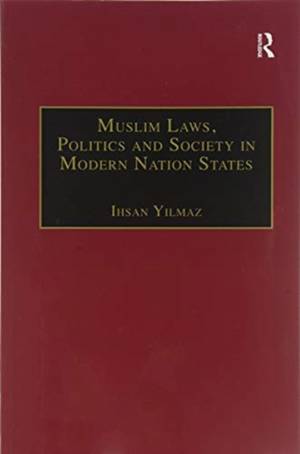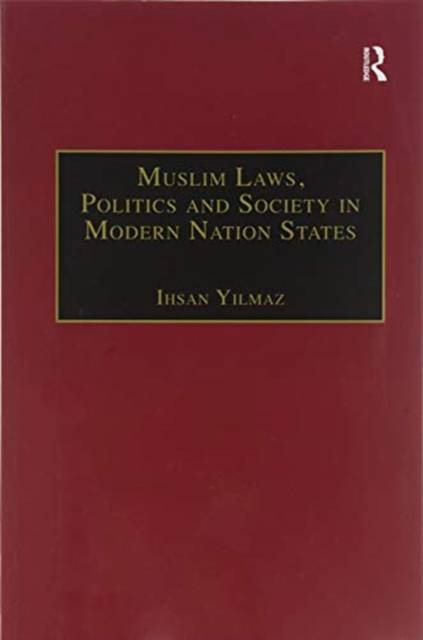
- Afhalen na 1 uur in een winkel met voorraad
- Gratis thuislevering in België vanaf € 30
- Ruim aanbod met 7 miljoen producten
- Afhalen na 1 uur in een winkel met voorraad
- Gratis thuislevering in België vanaf € 30
- Ruim aanbod met 7 miljoen producten
Zoeken
Muslim Laws, Politics and Society in Modern Nation States
Dynamic Legal Pluralisms in England, Turkey and Pakistan
Ihsan Yilmaz
Paperback | Engels
€ 72,95
+ 145 punten
Uitvoering
Omschrijving
Drawing on theories of legal pluralism, this book tests whether and to what extent claims of the modern nation-state laws to exclusive dominance over other spheres are tenable, and reassesses the operation of law in society. Incorporating a combination of legal theory, post-modern critique and socio-legal analysis of three current jurisdictions in which Muslims play an important role, the volume identifies Muslims' current socio-legal situation and attitudes from different perspectives and reconciles them with modern legal systems in three key countries. It analyzes the conflict between the assumptions of modern legal systems and plural legal realities, and also examines attempts by modern legal systems to impose official laws in the face of resistance from unofficial Muslim laws and discusses possible responses to the challenge of dynamic Muslim legal pluralism. A valuable resource for students, researchers and academics with an interest in the areas of Islamic law and politics, and the interplay between secular law and religious/cultural traditions.
Specificaties
Betrokkenen
- Auteur(s):
- Uitgeverij:
Inhoud
- Aantal bladzijden:
- 272
- Taal:
- Engels
Eigenschappen
- Productcode (EAN):
- 9781138259102
- Verschijningsdatum:
- 19/10/2016
- Uitvoering:
- Paperback
- Formaat:
- Trade paperback (VS)
- Afmetingen:
- 152 mm x 226 mm
- Gewicht:
- 521 g

Alleen bij Standaard Boekhandel
+ 145 punten op je klantenkaart van Standaard Boekhandel
Beoordelingen
We publiceren alleen reviews die voldoen aan de voorwaarden voor reviews. Bekijk onze voorwaarden voor reviews.











